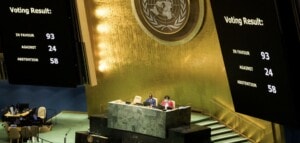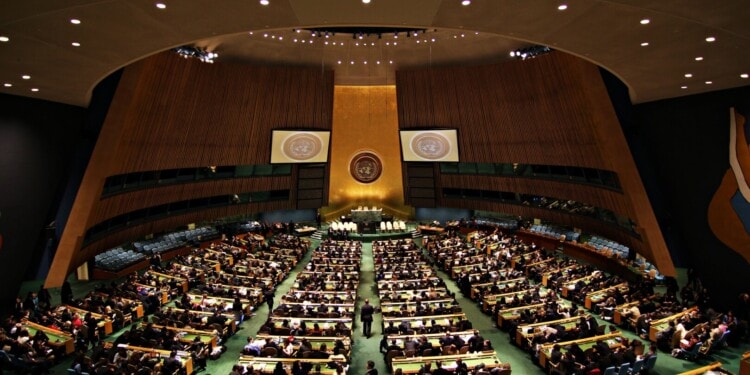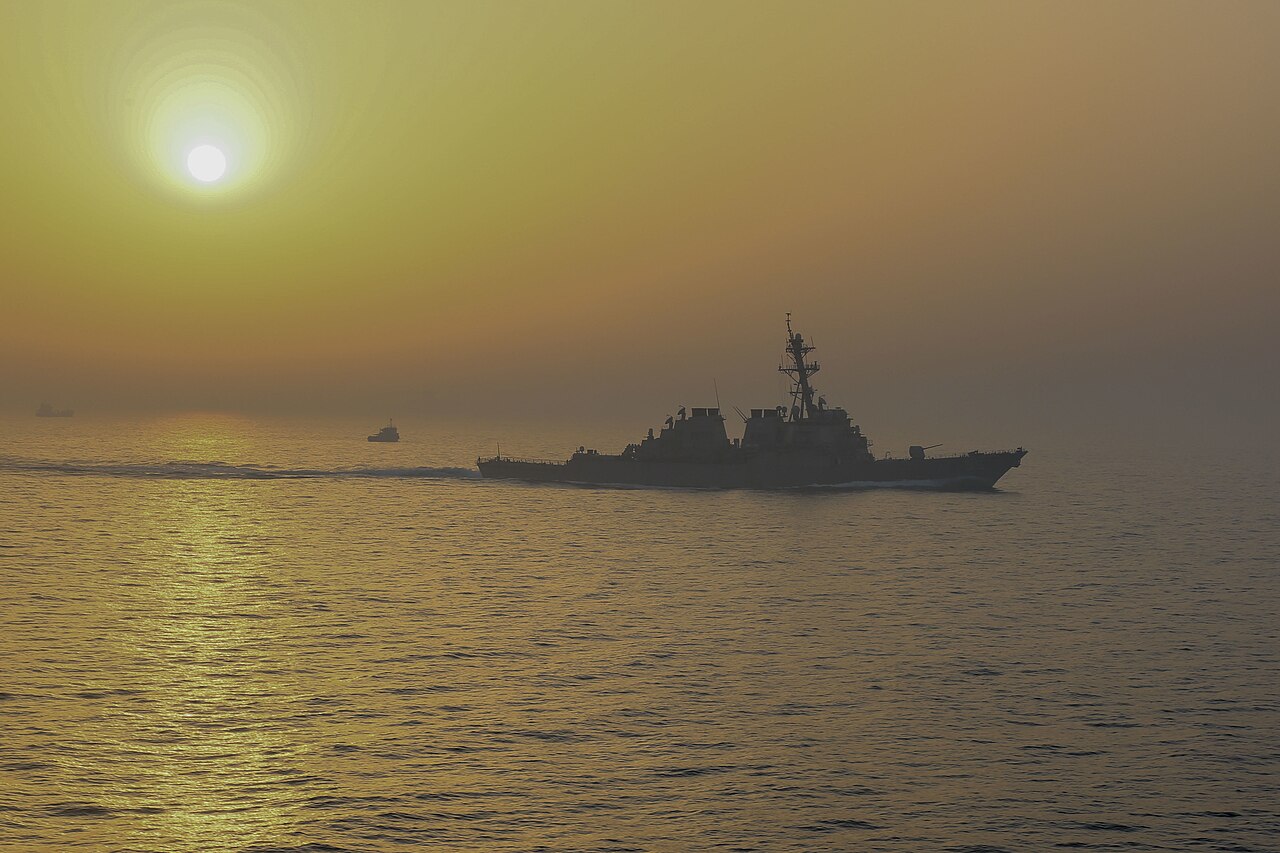The UN General Assembly adopted a resolution on Thursday calling for Russia to be suspended from the Human Rights Council. The resolution received a two-thirds majority of those voting, minus abstentions, in the 193-member Assembly, with 93 nations voting in favour and 24 against.

Predictably, Russia’s closest friends and allies, Cuba, North Korea, Syria and Vietnam, were among those who voted against the suspension of Russia. Perhaps more surprisingly, China and Iran also voted against the resolution, thus clearly indicating a level of support for Russia.
An even greater surprise came from Serbia that is historically (and to a large extent) pro-Russian: It too voted for the resolution but the next day the newly re-elected president Vučić publicly reversed the position announcing it was a mistake.
The meeting marked the resumption of a special emergency session on the war in Ukraine and followed reports of violations committed by Russian forces. In particular, in the city of Bucha, a suburb of the capital, Kyiv, where hundreds of civilian bodies were found in the streets and in mass graves following Russia’s withdrawal from the area.
Prior to voting, Ukrainian Ambassador Sergiy Kyslytsya urged countries to support the resolution.
“Bucha and dozens of other Ukrainian cities and villages, where thousands of peaceful residents have been killed, tortured, raped, abducted and robbed by the Russian Army, serve as an example of how dramatically far the Russian Federation has gone from its initial declarations in the human rights domain. That is why this case is unique and today’s response is obvious and self-explanatory,” he said.
Gennady Kuzmin, Russia’s deputy U.N. Ambassador, before voting, called for countries to “vote against the attempt by Western countries and their allies to destroy the existing human rights architecture.”
Russia joined the body in January 2021 as one of 15 countries elected by the General Assembly to serve three-year terms. Under the 2006 resolution that established the Council, the General Assembly can suspend a country from membership if it commits gross and systematic violations of human rights. Suspensions are rarely happening. Libya was suspended in 2011 because of violence against protesters by forces of Muammar Gaddafi.
Speaking after the vote, Gennady Kuzmin described the move as an “illegitimate and politically motivated step” and then announced that Russia had decided to quit the Human Rights Council altogether. He claimed the Council was monopolised by a group of States who use it for their short-term aims.
Russia’s partner China opposed the resolution on Thursday.
“Such a hasty move at the General Assembly, which forces countries to choose sides, will aggravate the division among member states and intensify the confrontation between the parties concerned – it is like adding fuel to the fire,” China’s U.N. Ambassador Zhang Jun said before voting.
Russia had warned countries that a yes vote or abstention will be viewed as an “unfriendly gesture” with consequences for bilateral ties, according to a source from Reuters.
For the European Union (EU), the scale and gravity of Russia’s violations in Ukraine, and of the territorial integrity and sovereignty of the country, call for a strong, cooperative international response.
“The rare decision this Assembly has taken today sends a strong signal of accountability and hopefully will help prevent and discourage more violations of human rights,” said Ambassador Olaf Skoog, head of the EU delegation.
The decision of the General Assembly to suspend Russia from the U.N. Human Rights Council is a clear message of the U.N. member states’ disapproval of Russia’s behaviour in Ukraine. The question remains how Russia will react, particularly if the independent investigation launched by the UN Secretary-General into Russian atrocities reveals that Ukraine’s accusation of war crimes is well-founded.
Editor’s Note: The opinions expressed here by Impakter.com columnists are their own, not those of Impakter.com. In the Featured Photo: United Nations General Assembly Hall in the UN Headquarters, New York. Featured Photo Credit: Flickr.com








